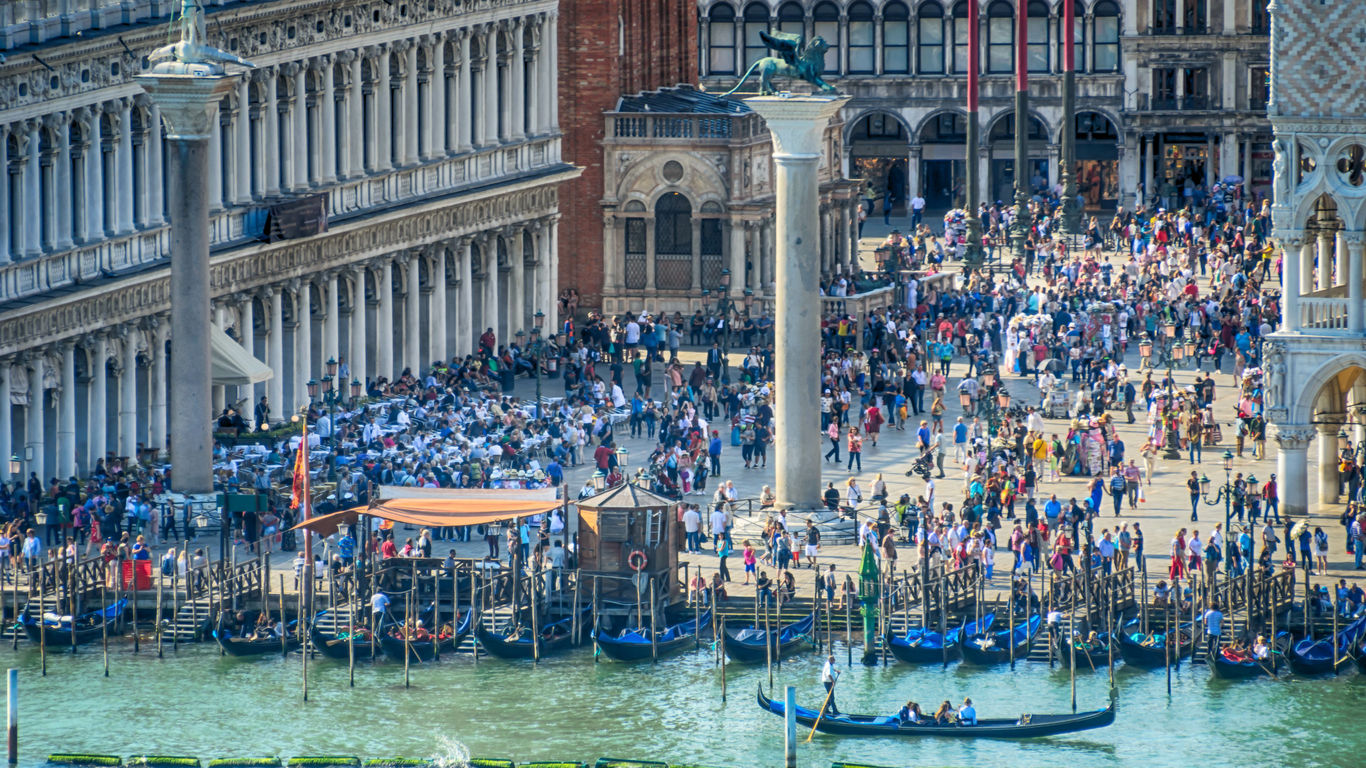
WHAT’S THE LONG-TERM SOLUTION TO OVERTOURISM? TRAVEL INDUSTRY EXPERTS WEIGH-IN
Countries around the world have been making headlines as they test various methods to address the pressures of overtourism.
The eternally popular destination of Venice has introduced a limit on tour group sizes and banned the use of loudspeakers by tour guides.
Barcelona, meanwhile, is increasing its tourist tax as of October and will ban all short-term rentals by 2029.
Yet another approach that's regularly discussed by industry thought leaders is spreading visitation to popular destinations over more of the year, thereby easing the summer rush that impacts many locations.
This approach encourages travel during quieter shoulder seasons (such as October) and even off-season, in order to lessen the burden on a destination.
But at least one tourism industry expert says distributing the impact of travel throughout the year may not be the right answer for every destination.
Rob Holmes, founder and chief strategist for GLP Films, a content marketing agency dedicated to sustainable tourism, says residents in communities that are popular with tourists may be better served by a seasonal break from visitors, rather than spreading visitors out over a longer time frame.
“We can’t make the assumption that all-season travel is going to work for all destinations,” says Holmes, who lives in the popular tourist town of Kennebunkport, Maine. “Where I am, and places that I’ve been, people don’t want people all year round. They want a break.”
“They’re exhausted after summertime - the peak season,” Holmes added. “All season is not necessarily the best solution for all destinations.”
Holmes’ comments came during a panel discussion about designing sustainable travel at the WeTravel Travel Innovation Summit this week.
Executives from a handful of the world’s most well-known travel names and brands took part in the panel discussion, including representatives from The Travel Corporation (TTC), Exodus Travels, and The Travel Foundation.
As an issue that’s challenging and frustrating many of the planet’s most-well known destinations, overtourism and its impacts on destinations, was a key part of the discussion about how the industry can operate more sustainably.
Holmes said that while it’s “nice to have a little travel extended into the shoulder season,” because it offers residents more income and let’s people continue their travel-related jobs for a longer period of the year, there needs to also be consideration for the wishes of local residents.
“People, at end of the day, especially in rural locations, want a break. They want time off,” said Holmes.
Yet another way to help address overtourism is by bringing visitors to less popular or well-known destinations, said Nadine Pinto, global sustainability manager for The Travel Corporation.
“From our perspective at TTC, what we try to do is make sure we’re staying in secondary destinations or destinations that are outside the main touristy spots,” explained Pinto. “We set a goal within our sustainability strategy that we’re going to increase the number of itineraries that [go to] these developing regions.”
Global adventure tour operator Exodus Travels has also begun incorporating this type of approach, along with other steps aimed at addressing overtourism in the destinations it visits.
“You want to go to places that are known. And then you spread the benefits to the other places you never heard of. And then that’s how you trigger the development of areas that otherwise do not receive enough attention,” said Julia Blanco, lead product manager for Exodus.
Tour operators can also make decisions to cap group sizes and bring smaller groups to busy locations, Blanco said. Exodus followed this practice for a limited time in Italy’s wildly popular Cinque Terra region.
If multiple tour operators were to make the decision to reduce their capacity by even just two travelers, the impact of such a shift would begin to add up for overburdened destinations, said Blanco.
“Every little bit matters,” she said.
Overtourism however, is a complex problem that cannot be solved by any one of these efforts alone. Another key piece of the solution must come from allowing destinations to take the lead, said Pinto.
“We’re always going to support what the destination wants, because the destination is going to put forward, hopefully, the best solutions that reflect their communities,” Pinto said.
One last important point stressed by the panelists. In order to truly address overtourism, all the stakeholders involved in the travel supply chain should be involved in the discussions. That includes tour operators, airlines, local governments, community members and more.
“It’s just really understanding that we all have a role and we all have a responsibility to be responsible travelers and responsible tour operators,” said Pinto.
2024-09-13T17:16:35Z dg43tfdfdgfd